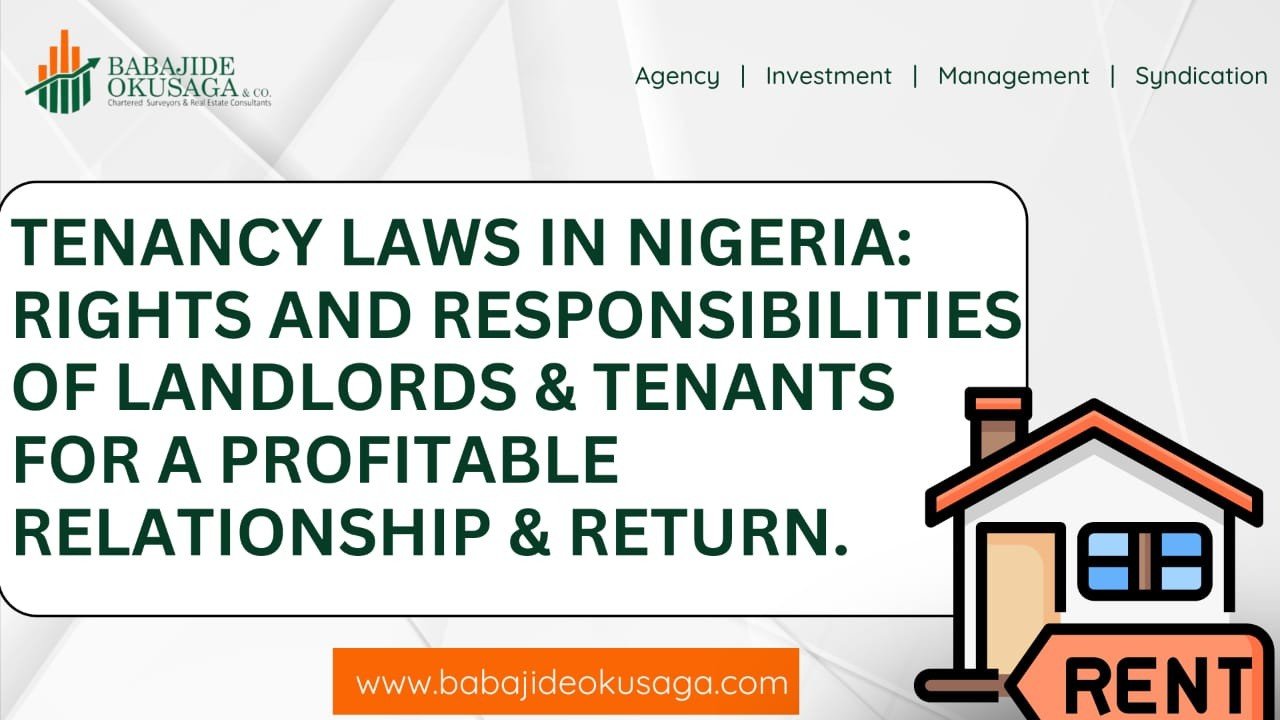Tenancy law in Nigeria is a complex and vital aspect of renting property. Understanding the rights and obligations of both landlords and tenants is crucial for a smooth tenancy experience. In Nigeria, these laws are designed to protect the interests of both parties and provide a framework for resolving disputes. It’s essential to familiarize yourself with the tenancy law in Nigeria to ensure a harmonious rental relationship.
Tenancy Law in Nigeria: A Comprehensive Guide
Welcome to our detailed guide on tenancy law in Nigeria. Whether you are a landlord or a tenant, understanding the legal framework governing tenancy in Nigeria is crucial for a smooth and harmonious renting experience. In this comprehensive article, we will delve into the key aspects of tenancy law in Nigeria, covering everything from types of tenancy agreements to rights and responsibilities of both landlords and tenants. Let’s get started!
Types of Tenancy Agreements
In Nigeria, there are various types of tenancy agreements that govern the relationship between landlords and tenants. The most common types include:
1. Fixed Term Tenancy:
This type of tenancy has a specific duration agreed upon by both parties. Once the term expires, the agreement can be renewed or terminated based on the mutual agreement of the landlord and tenant.
2. Periodic Tenancy:
A periodic tenancy is one that continues from period to period, such as month to month or year to year, until either the landlord or tenant gives notice to terminate the agreement.
3. Tenancy at Will:
This type of tenancy is more informal and does not have a fixed duration. It can be terminated at any time by either party without the need for a formal notice.
Rights and Responsibilities of Tenants
Tenants in Nigeria have certain rights and responsibilities that are protected by the tenancy law. Some of the key rights include:
1. Right to Quiet Enjoyment:
Tenants have the right to live peacefully in the rented property without interference from the landlord.
2. Right to Basic Amenities:
Landlords are required to provide basic amenities such as electricity, water, and sanitation facilities to tenants.
3. Responsibility to Pay Rent:
Tenants are responsible for paying rent on time as agreed in the tenancy agreement.
Rights and Responsibilities of Landlords
Landlords also have certain rights and responsibilities under the Nigerian tenancy law. Some of the key rights include:
1. Right to Evict:
If a tenant breaches the terms of the tenancy agreement, the landlord has the right to evict the tenant following the legal process.
2. Right to Inspect Property:
Landlords have the right to inspect the property with proper notice to ensure that it is being maintained in good condition.
3. Responsibility to Maintain Property:
Landlords are responsible for maintaining the property in a habitable condition and making necessary repairs when needed.
Legal Procedures for Dispute Resolution
Disputes between landlords and tenants can arise from various issues, such as non-payment of rent, property damage, or lease violations. In Nigeria, there are legal procedures in place to resolve such disputes:
1. Notice to Quit:
If a landlord wishes to terminate a tenancy agreement, they must provide the tenant with a formal notice to quit, stating the reason for eviction and the required notice period.
2. Tenancy Tribunal:
In cases where disputes cannot be resolved amicably, either party can seek redress through the tenancy tribunal, which is a specialized court that handles tenancy-related matters.
3. Mediation:
Mediation is also a common method used to resolve disputes outside of the court system. A neutral third party helps facilitate communication between the landlord and tenant to reach a mutually acceptable resolution.
In conclusion, understanding tenancy law in Nigeria is essential for both landlords and tenants to have a clear understanding of their rights and responsibilities. By familiarizing yourself with the types of tenancy agreements, rights and responsibilities of both parties, and legal procedures for dispute resolution, you can ensure a smooth and harmonious renting experience. We hope this guide has provided valuable insights into the intricacies of tenancy law in Nigeria. If you have any questions or need further clarification, feel free to reach out to us. Happy renting!
Rights and Obligations of the Tenant under the law
Frequently Asked Questions
What are the key provisions for terminating a tenancy agreement in Nigeria?
In Nigeria, the key provisions for terminating a tenancy agreement include giving the required notice period, which is typically one month in advance for a monthly tenancy. The tenant must also ensure that all outstanding rent and other obligations are settled before moving out. Failure to comply with these provisions may result in legal consequences.
Can a landlord increase rent arbitrarily under Nigerian tenancy law?
No, under Nigerian tenancy law, a landlord cannot increase rent arbitrarily. Any proposed increase in rent must be reasonable and in line with the provisions of the tenancy agreement. The landlord must also give the tenant proper notice before implementing the rent increase, typically one rental period in advance.
What are the rights and responsibilities of tenants and landlords under tenancy law in Nigeria?
Both tenants and landlords in Nigeria have rights and responsibilities under the tenancy law. Tenants have the right to peaceful enjoyment of the property, while landlords have the right to receive rent on time. Tenants are responsible for maintaining the property in good condition, while landlords are responsible for ensuring that the property is habitable and addressing any structural issues.
Final Thoughts
In conclusion, understanding tenancy law in Nigeria is crucial for both landlords and tenants. Clarifying rights and responsibilities helps prevent disputes and ensures a fair rental environment. Seeking legal advice can provide valuable guidance on navigating tenancy issues within the legal framework. Compliance with tenancy law in Nigeria is essential for a harmonious landlord-tenant relationship.



